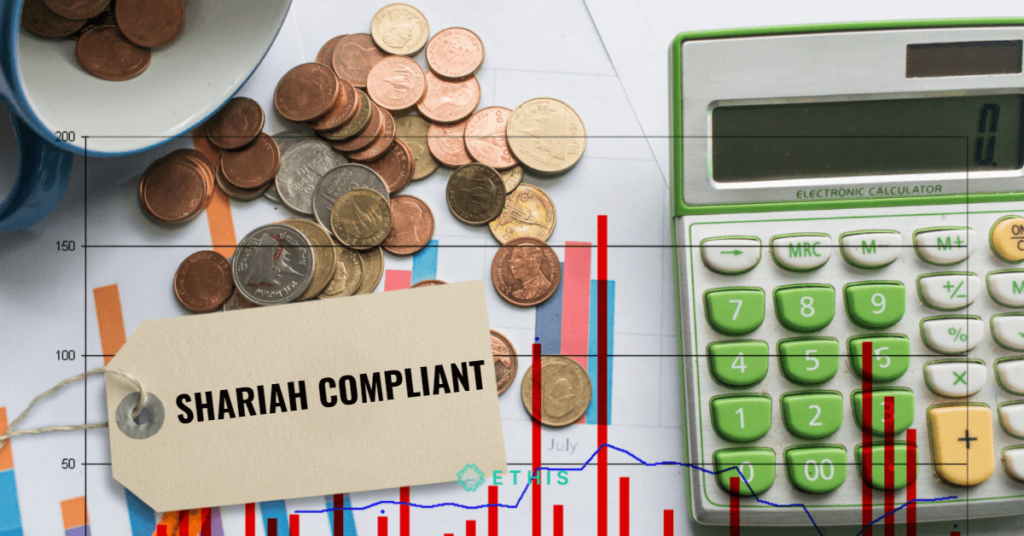
A lack of financial knowledge, especially from a young age, can contribute to poor financial choices that can harm one’s financial health.
Financial illiteracy has negative impacts, not only on an individual but also on communities and countries. In an individual, financial illiteracy can result in inadequate savings, excessive credit card use and bad investment decisions.
Poor financial management in families leads to many problems including divorce, suicide, domestic violence and other crimes. At the macro level, financial illiteracy can result in lower family balance sheets and enhance dependence on social welfare or charity, which leads to a weak overall economy.
Why is financial literacy necessary for youth? The simple answer is that It helps them understand the value of money, which can help them handle their money better. Young people, with years of earning ahead of them, should know that investment is essential. Well-planned investments can provide them with an income stream while accumulating money for retirement, which many forget to consider.


Financial literacy is important for young people because it enables them to grasp the value of money, which may help them manage their finances more effectively.
The key to building wealth is developing good habits like regularly putting aside some amount of money every month. Swap out the fancy dinners for a meal at home, and you could use the excess funds to build wealth.
What is halal investing, and what makes halal investment different from a conventional investment?
Halal investing means investing in a manner that complies with Islamic law (also called sharia-compliant investing). However, Halal investing is not meant for Muslims only. It is open to all, both Muslim and non-Muslim. So what makes halal investment different from conventional counterparts?
There are several principles of halal investing including the prohibition of usury (riba) based activities and avoiding uncertainty-based (gharar) and gambling (maysir or qimar) transactions. In addition to this, halal investing also prohibits businesses that profit off certain activities such as alcohol, tobacco, gambling, pork and weapons among others. In sum, halal investing aims to promote ethics in society at large.


The Halal way to invest
Here are a few of the halal investment options the young generation can consider:
Stocks:
Stocks are investments in a company’s future success. When you invest in a company’s stock, you can enjoy dividend payments. Also, as the company grows and the value of the shares increases, you can sell your shares and pocket the difference, which are also known as capital gains. Yes, stock markets are unpredictable. But have you ever heard of the notion: high risk, high return? Find a list of shariah-compliant stocks and start investing in the stock market.
Sukuk:
If you prefer more stable investment options, consider investing in sukuk. Sukuk, also known as an Islamic bond, offers investors capital gain derived from the underlying assets of the Sukuk. Investors can hold the sukuk until its maturity date to receive a principal on the face value invested. Alternatively, an investor can sell the sukuk in the secondary market before its maturity date.
Unit trust:
Unit trust is a collective investment scheme that allows investors with similar investment objectives to pool their funds together. According to the fund’s objective and investment strategy, the appointed professional fund managers will invest these funds in a different portfolio of securities, depending on the investor’s risk appetite. Various shariah-compliant unit trust funds are performing well that are available in the market.
Real estate:
Real estate investing involves the purchase, ownership and management of properties, either shop-lots or residential houses, for a profit. Real estate investors gain income in the form of rental and property appreciation. Real estate is generally a great investment option for the young generation because you can enjoy low bank profit rates and repayment plans when you buy properties at a young age, making your investment plan more affordable.
Commodity:
Investing in commodities, such as gold, can provide investors with diversification, a hedge against inflation, and excess positive returns. Commodity investing is a strategy that’s best for young, sophisticated investors. The best way to invest in commodities is through Shariah-approved commodity exchange-traded funds (ETFs).


Equity Crowdfunding and Peer to Peer Lending
Equity Crowdfunding (ECF) and Peer-to-Peer (P2P) Lending are recent two popular kinds of halal crowdfunding that have piqued the interest of investors, especially the youth, to diversify and increase their wealth.
In essence, crowdfunding is the process of acquiring small sums of money from a large number of individuals, usually over the Internet, to support a project or business.
ECF is a type of fundraising campaign in which individuals invest in a company (often a small business) in return for shares in the firm. As a result, the investor becomes a partial owner of the firm and has a chance to share in its earnings if it succeeds.



On the other hand, peer-to-peer (P2P) lending is the practice of lending money to individuals or businesses using internet platforms that connect lenders and borrowers. The lender (investor) is then reimbursed his money.
Why has ECF and P2P Lending gained traction in recent years?
P2P investing is attracting a lot of attention from potential youthful investors searching for an alternative to bank fixed deposits. P2P allows investors to diversify and participate in a variety of lending possibilities with a modest minimum investment.
They are also attracted by better returns than fixed deposit investments, lower volatility than shares or unit trust funds, and, eventually, the promise of regular monthly payments with more return predictability. But, like with any investment, young investors must be aware of what they are getting into, no matter how appealing the package appears to be.
ECF entails investing in fairly early-stage firms, and as such, there are dangers to be aware of, including the possibility of bankruptcy, in which case you will not be able to recoup your initial investment.
Furthermore, individuals wanting to see their ECF investments pay off quickly may be disappointed, as profits may not be immediate. This is because, rather than paying dividends to shareholders, firms may reinvest any earnings back into the business for development. If you invest in ECFs, you may encounter liquidity difficulties because selling your shares could take a long time.
According to Umar Munshi, co-Founder at Ethis group of Fintech startups, P2P financing or lending is viewed as an alternative vehicle for investors seeking returns in the present high volatility, low-interest-rate environment. Investors now have access to transactions that were previously unavailable to them, in addition to increasing portfolio diversity and lowering risks.
Why invest via Ethis?
Ethis is well-known for its impact investing ECF and peer-to-peer (P2P) campaigns. On their ECF platform, one will be able to invest directly in firms to participate in equity funding campaigns. Institutional-grade private equity, fractional property investment, and Waqf investments are now available to almost anybody.
With P2P crowdfunding at Ethis, one can invest from anywhere in the world, in lucrative, high-impact initiatives in developing Indonesia. Since 2016, investors from more than 50 countries have invested in projects totalling more than US$133 million in Gross Development Value (GDV).


Investment guidance for youth:
At the end of the day, it comes down to personal preference. Caveat emptor should always be used when dealing with any new investment strategy that has yet to be tried and proven. Nonetheless, here is some cautionary advice to potential young investors before taking the plunge to invest.
1) Understand how ECF and P2P fit into your overall asset allocation strategy.
Because the Securities Commission (SC) has divided investors into three categories—sophisticated, angel, and retail—each with its own set of requirements and investment cap, they are deemed high-risk investments. As a general guideline, investing more than 2% of your entire investable cash in crowdfunding is not recommended.
2) You should not enter the investment market without first learning the fundamentals of investing.
This may take some research, but your dedication will likely spare you a lot of grief and suffering in the long run. Here are a few things you can do as part of your own due diligence:
a) Confirm that the platform has been approved by the SC; next, study each platform to compare their performance.
b) Look into each plan on the platform because they are not all the same. While the platform operator does background checks on firms who use the platform, it never hurts to do your research.
c) Read the small print of the platform operator’s agreement to understand each party’s rights and obligations. Pay close attention to the risk warnings in the agreement, particularly the ones about the possibility of losing your money and the unsecured nature of the transaction (for P2P).
3) Have you ever heard the expression “don’t put all your eggs in one basket?” This proverb is unquestionably true when it comes to investing.
It’s essential to diversify your financial portfolio as much as possible. You can reduce the likelihood of losses and enjoy varied rates of return by assuring investments with varying risks. You should seek different assets and understand your risk appetite and tolerance to construct a diversified portfolio.
4) Keep an eye on the performance of your investments.
Even if there isn’t much you can do to withdraw your investment right away, you may at least psychologically prepare for the worst-case situation.
5) Consider the amount of time it will take for your investments to pay off.
Payouts are uncommon at start-ups, and you may only receive a return on your investment when you sell your shares in the company, which might take years. Is the investment worth the wait and the danger, given the amount of time and effort required to do research?


What does all of this mean?
Thomas Woodrow Wilson, the 28th President of the United States, once said, “One calm judgment is worth a dozen hurried councils.”
Investing opportunities come and go regularly. It’s only natural for investors to seek alternatives to their current assets that have previously produced less-than-impressive results.
However, as young investors chasing the traditional pot of gold at the end of the rainbow, don’t lose sight of your own investment objectives. While a particular investing strategy may be popular right now, it may not be suitable for everyone. Every time anything new enters the market, herd mentality is sure to rear its head. This is where precaution and self-discipline distinguish a prudent investor from the crowd.
Read more on 18 Financial Habits to Develop for Better Money Management





Top Posts
Islamic P2P Crowdfunding Explained
Halal Money Matters: How Muslims Can Balance Deen and Dunya with Smart Islamic Finance
Halal Investments for Singapore Muslims? It’s time for a shake-up in the Islamic Investments scene.
Smart investment for making Halal money
3 Reasons Why Property Crowdfunding is the Smart Investment for You